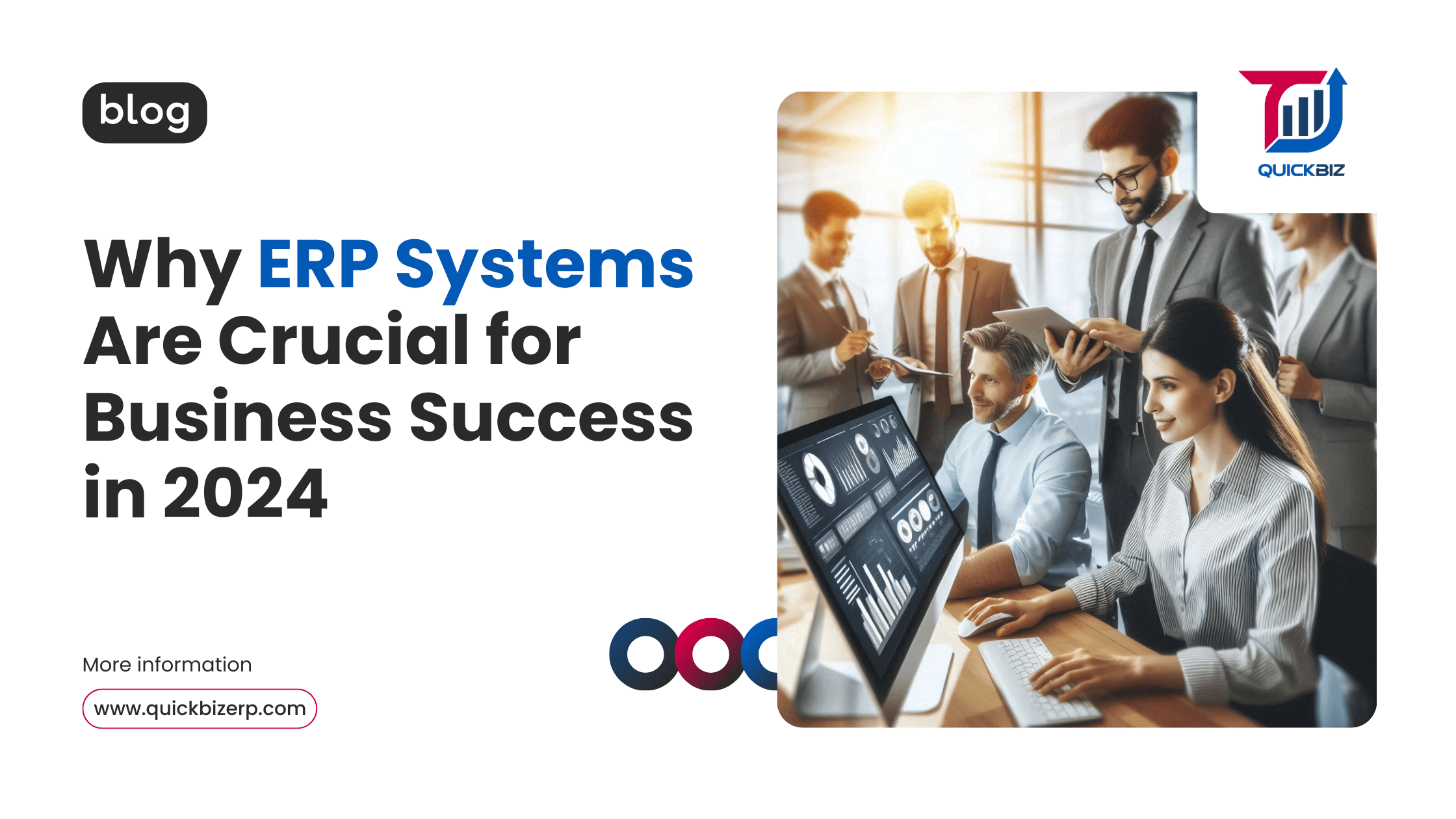Why ERP Systems Are Crucial for Business Success in 2024

In today's fast-paced, technology-driven business environment, Enterprise Resource Planning (ERP) systems have become a fundamental tool for success. As we approach 2024, ERP systems are proving essential for businesses, particularly in dynamic markets like South Africa, by improving operational efficiency and enhancing decision-making processes. Whether it's managing financial data, improving customer relationships, or streamlining logistics, businesses need integrated solutions like QuickBiz ERP to stay competitive.
Why ERP Systems Matter in 2024
- Real-Time Data Access & Better Decision-Making
In the modern business landscape, decision-making needs to be fast and data-driven. ERP systems, by offering real-time data insights, enable leaders to make informed decisions quickly, whether it's adjusting inventory, reviewing financials, or tracking customer interactions. Businesses leveraging QuickBiz ERP can access centralized, up-to-date information, improving agility and helping them respond swiftly to market changes.
-
Increased Operational Efficiency
With an ERP system, businesses can streamline their entire operations from supply chain management to customer relationship management (CRM). By automating routine workflows and centralizing tasks, ERP systems eliminate inefficiencies and reduce manual processes. For instance, QuickBiz ERP provides features that seamlessly integrate financial management, inventory control, and sales tracking in one place, leading to greater operational efficiency. This eliminates the need for multiple platforms and consolidates business data for easier management. Read more about how QuickBiz ERP streamlines business operations.
-
Enhanced Collaboration Across Departments
Cross-departmental collaboration is critical for businesses that wish to scale efficiently. ERP systems eliminate silos by providing a single source of truth for the entire organization. This fosters communication and collaboration across teams, allowing departments to work more cohesively. With tools like QuickBiz ERP[], businesses can ensure that their sales, finance, and operations teams are all working with the same real-time data, reducing miscommunications and errors.collaboration is key to scaling your business efficiently, as disconnected systems or misaligned data can hinder growth.
-
Improved Customer Experience
ERP systems can greatly enhance customer service by integrating Customer Relationship Management (CRM) modules. This allows businesses to track customer interactions, purchase histories, and preferences, ensuring a personalized and seamless experience. With QuickBiz ERP's CRM capabilities, businesses are empowered to build better relationships with their customers by providing faster and more tailored solutions. In fact, businesses that adopt ERP with integrated CRM report improved customer satisfaction and retention.
-
Future-Proofing Your Business
The global business landscape is evolving rapidly, and future-proofing your business is essential to remain competitive. ERP systems, with their advanced data-driven, automated solutionsplay a crucial role in preparing businesses for the future. By using QuickBiz ERP, companies can not only streamline their operations but also adapt quickly to changing market conditions. This future-proofing becomes particularly important as businesses scale and face more complex challenges that require flexibility and adaptability. Read about the top ERP features driving efficiency in business.
Conclusion
ERP systems are no longer just a tool for large corporations—they are a necessity for businesses of all sizes, particularly in fast-paced markets like South Africa. By providing real-time insights, automating processes, and improving collaboration and customer experiences, ERP systems like QuickBiz ERP help businesses stay agile and ready for the challenges of tomorrow. In 2024, embracing ERP is not just about staying competitive—it’s about setting the foundation for long-term success.Harnessing data analytics is no longer optional for logistics companies; it is essential for thriving in an increasingly competitive market. By enhancing visibility, improving decision-making, and leveraging customer insights, businesses can make smarter logistics decisions that lead to operational excellence and increased customer satisfaction. The future of logistics is data-driven—embrace it to stay ahead!

